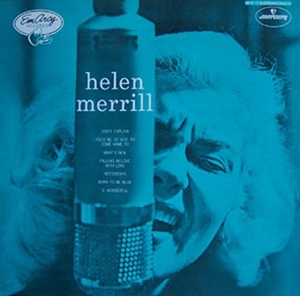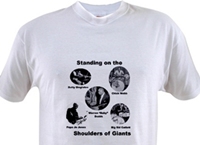
Marc Myers' five part interview of Merrill on JazzWax provided many insights into Merrill, including anecdotes from the 1954 Clifford Brown recording session, and her approach as a musician. And she isn't a vocalist - she is a musician in every sense the same way Anita O'Day was a musician. They both understood how to use their voices as instruments.
What, you are probably asking, does this have to do with drummers? The answer is she emphasizes how important it is to have musicians who connect with her instead of merely accompanying her. During her era, and especially in jazz, the best musicians listened to each other. I recall hearing or reading Papa Jo Jones' advice to do just that too. To illustrate the connection between and among musicians comprising an ensemble, I found a few of Helen's albums that are shining examples and should be closely studied by both drummers and bassists. Especially those who are in groups with vocalists.
The first album is The Duets. Recorded in 1988, Helen's powers are somewhat diminished, but her phrasing and ability to get inside of a song and deliver it are among the reasons I recommend it.
As a music lover, the real power of this album is Helen's skill as a vocalist who - like Anita O'Day - uses her voice as an instrument, and the arrangements by Ron Carter. Indeed, the fact that only Merrill, Carter on bass, and a very subtle Victor See-Yuen on percussion are the ensemble makes this an essential album for musicians. See-Yuen's percussion is so under the music, adding a rhythmic fabric, that Merrill's voice and Carter's bass combine in ways one would have never guessed with such a line-up. This clip is a prime example.
The selection of songs and how Carter arranged them are also reasons why this album works so well. In my quest to learn of and listen to all things Helen Merrill, I came across interviews where she emphasizes many times how important it is to have musicians who connect with her instead of merely accompanying her. Carter's arrangements give that space, and he and See-Yuen do connect with her, as shown by this example.
Listening as a musician I marvel at the way a vocialist and bassist can create an eleven track album that is interesting and enjoyable. It should open the eyes of any small ensemble about the musical possibilities that can be realized. And for bassists, this is like an advanced lesson in melody and groove.
While she will probably be forever remembered for her album with Clifford Brown - surely a masterpiece - her singing on that album only hints at the approach she discusses in her interview.
A study in contrasts can be made by comparing her earlier album with her Homage to Clifford Brown, which is a much different album. Evidence of how different this album is from the original can be heard by listening to one of my favorite tracks from both albums: You'd Be So Nice To Come Home To. Let's compare them:
40 years later
In the original Helen has a presence, but in a more subtle way. She exuded power, but there was another - almost ineffable - quality on that track and the others from that magic session that is vastly different on this one. I am not implying one is better than the other - just that they are different. Part of the reason, I am sure, is Helen had forty additional years of experience that refined her style. And, frankly, she also had forty years of additional age that will alter, for better or worse, a voice.
Differences for whatever reasons do not mask the fact that her phrasing in both are impeccable and she and the musicians with whom she shared the session were connected. Therein lies the lesson. It's not an easy lesson, and perhaps this material is too obscure for many because I have had the advantage of delving deeply into it. The music - even Helen's voice - may be off putting to some. But the interaction between and among the musicians is the key. It's almost like a lost art today. I am offering this set of examples, wrapped in my babbling, as something that merits deep thought and study.



No comments:
Post a Comment